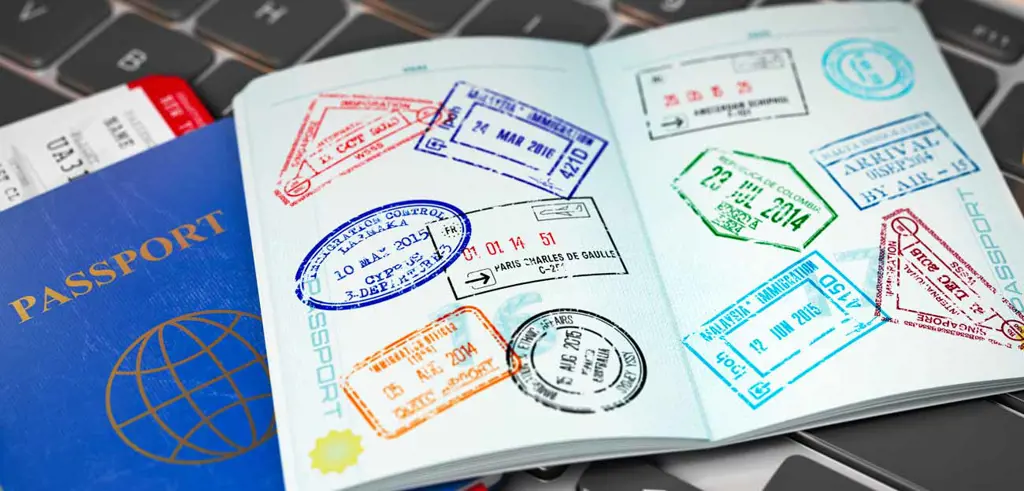
Have you ever dreamed of visiting the picturesque landscapes and breathtaking beauty of Switzerland? With a Schengen Visa in hand, you can explore the alpine beauty of this stunning country. From the snow-capped mountains and pristine lakes to the charming towns and vibrant cities, Switzerland offers the perfect mix of natural beauty and urban sophistication. So pack your bags, get your camera ready, and prepare to embark on an unforgettable journey through the mesmerizing landscapes of Switzerland.
| Characteristics | Values |
|---|---|
| Destination | Switzerland |
| Visa Type | Schengen Visa |
| Passport Required | Yes |
| Validity | 90 days within 180 days |
| Purpose of Visit | Tourism, Business, Medical, etc. |
| Visa Application Process | Online or at the Swiss embassy/consulate |
| Documents Required | Passport, Application form, Photo, Travel itinerary, Travel insurance, Accommodation proof, Financial proof, etc. |
| Visa Fee | Varies based on nationality and type of visa |
| Processing Time | Usually 15 days |
| Travel Restrictions | Check the latest travel advisories and entry requirements due to COVID-19 pandemic |
| Additional Information | Check if any additional documents or requirements are needed for specific situations such as minors traveling, transit through other countries, multiple entry, etc. |
What You'll Learn
- Can I enter Switzerland on a Schengen visa if it is not my main destination?
- What are the requirements for obtaining a Schengen visa to travel to Switzerland?
- Can I stay in Switzerland for the entire duration of my Schengen visa, or do I need to visit other Schengen countries as well?
- Are there any specific restrictions or rules I should be aware of when traveling to Switzerland on a Schengen visa?
- What happens if my Schengen visa expires while I am in Switzerland Can I extend my stay or apply for a new visa?

Can I enter Switzerland on a Schengen visa if it is not my main destination?

Yes, it is possible to enter Switzerland on a Schengen visa even if it is not your main destination. The Schengen visa allows for free movement within the Schengen Area, which includes Switzerland.
The Schengen visa is a short-term visa that allows travelers to enter and stay in any of the 26 Schengen member countries for a maximum of 90 days within a 180-day period. These countries include Austria, Belgium, the Czech Republic, Denmark, Estonia, Finland, France, Germany, Greece, Hungary, Iceland, Italy, Latvia, Liechtenstein, Lithuania, Luxembourg, Malta, the Netherlands, Norway, Poland, Portugal, Slovakia, Slovenia, Spain, Sweden, and Switzerland.
When applying for a Schengen visa, you are required to provide information about your main destination, such as the country where you will be spending the majority of your time or the country that is the primary purpose of your trip. However, this does not mean that you are limited to only visiting that country.
If you have a valid Schengen visa, you are allowed to enter Switzerland and travel freely within the Schengen Area. This means you can visit other Schengen countries as well, even if they are not listed as your main destination on your visa application.
For example, if you applied for a Schengen visa with Italy as your main destination but decided to visit Switzerland instead, you can still enter Switzerland without any issues. However, you should be able to justify your change in plans if asked by immigration officials. It is important to carry any necessary documents, such as hotel bookings, proof of travel insurance, and a detailed itinerary, to support your travel plans and explain your intended activities in Switzerland.
It is worth noting that if you plan to spend an extended period of time in Switzerland or if Switzerland is the country where you will be spending the majority of your time, it is advisable to mention Switzerland as your main destination when applying for the Schengen visa. This will ensure that your visa application is processed by the Swiss embassy or consulate, and it will be easier to justify your travel plans when entering Switzerland.
In conclusion, you can enter Switzerland on a Schengen visa even if it is not your main destination. The Schengen visa allows for free movement within the Schengen Area, so you can visit other Schengen countries as well. Just make sure to carry the necessary documents to support your travel plans and be prepared to explain your intended activities in Switzerland if asked by immigration officials.
Traveling to the Bahamas: Can I Enter with a US Tourist Visa?
You may want to see also

What are the requirements for obtaining a Schengen visa to travel to Switzerland?

Switzerland is a popular tourist destination for travelers around the world, known for its stunning landscapes, charming towns, and rich cultural heritage. If you are planning to visit Switzerland, you may require a Schengen visa to enter the country. In this article, we will discuss the requirements for obtaining a Schengen visa to travel to Switzerland.
Determining the type of visa:
Before applying for a Schengen visa to Switzerland, it is important to determine the type of visa you need. The purpose of your visit will determine the appropriate visa category. Switzerland offers various types of Schengen visas, such as tourist visa, business visa, medical visa, and transit visa. Each visa category has specific requirements, so it is important to choose the correct one based on your travel purpose.
Filling out the application form:
To apply for a Schengen visa to Switzerland, you will need to fill out the visa application form. The form can be obtained from the Swiss embassy or consulate in your country or can be downloaded from their official website. Make sure to fill out the form accurately and provide all the necessary information.
Valid passport:
A valid passport is a basic requirement for obtaining a Schengen visa to Switzerland. Your passport should be valid for at least three months beyond your intended stay in Switzerland. It should also have at least two blank pages for visa stamping.
Travel itinerary:
You need to provide a detailed travel itinerary as part of your visa application. This includes confirmed flight reservations, hotel bookings, and a day-to-day plan of your activities in Switzerland. Make sure to include all the cities you plan to visit and the dates of your stay.
Proof of accommodation:
You will be required to provide proof of accommodation for your entire stay in Switzerland. This can be in the form of hotel reservations, a letter of invitation from a host in Switzerland if you plan to stay with someone, or a rental agreement if you are staying in a rented apartment.
Travel insurance:
Travel insurance is mandatory when applying for a Schengen visa to Switzerland. The insurance should provide coverage for medical emergencies, hospitalization, and repatriation. The minimum coverage required is €30,000.
Financial means:
You need to demonstrate that you have sufficient financial means to cover your stay in Switzerland. This can be done by providing bank statements for the past three months, pay slips, or a letter from your employer stating your monthly salary.
Proof of ties to your home country:
To ensure that you will return to your home country after your visit to Switzerland, you need to provide proof of ties. This can be in the form of property ownership, employment contracts, family ties, or any other relevant document that shows your intention to return.
Visa fee:
There is a non-refundable visa fee that needs to be paid when submitting your visa application. The fee amount may vary depending on the type of visa you are applying for and your nationality.
Additional documents:
Depending on your specific visa category, you may be required to provide additional documents. For example, if you are applying for a business visa, you may need to provide an invitation letter from a Swiss company or proof of business meetings.
In conclusion, obtaining a Schengen visa to travel to Switzerland requires careful planning and the submission of a variety of documents. It is important to adhere to the requirements and provide accurate information to increase your chances of a successful visa application. Make sure to check the Swiss embassy or consulate website in your country for the most up-to-date information and visa application process.
Traveling to Albania with a US Visa: Everything You Need to Know
You may want to see also

Can I stay in Switzerland for the entire duration of my Schengen visa, or do I need to visit other Schengen countries as well?

If you have been granted a Schengen visa and you plan to visit Switzerland, you may be wondering whether you can stay in Switzerland for the entire duration of your visa, or if you are required to visit other Schengen countries as well. The answer to this question depends on the type of visa you have and the length of your intended stay in Switzerland.
First, let's understand what a Schengen visa is. The Schengen area is a group of 26 European countries that have abolished passport control at their mutual borders and operate a common visa policy for travelers outside the area. A Schengen visa allows travelers to enter and stay in the Schengen area for a maximum of 90 days within a 180-day period.
There are different types of Schengen visas, including the Uniform Schengen Visa (USV) and the Limited Territorial Validity Visa (LTV). The USV allows you to travel to and stay in any Schengen country for the duration of your visa, while the LTV restricts your stay to a specific Schengen country or countries.
If you have been issued a USV, you can stay in Switzerland for the entire duration of your visa without the need to visit other Schengen countries. However, if you have been issued an LTV, your stay may be limited to Switzerland or a specific group of Schengen countries. In this case, you would need to abide by the restrictions specified in your visa.
It's important to note that if you are planning to stay in Switzerland for the entire duration of your visa, you should carefully consider the length of your intended stay. The maximum allowed stay in the Schengen area is 90 days within a 180-day period. This means that if you stay in Switzerland for 90 days, you will not be able to return to the Schengen area until at least 90 days have passed since your departure.
If you wish to stay in the Schengen area for a longer period of time, you may need to apply for a different type of visa, such as a national visa or a residence permit. These visas are issued by individual Schengen countries and allow for longer stays, often for the purpose of work, study, or family reunification. The requirements and application process for these visas may vary depending on the country you wish to stay in.
In conclusion, whether you can stay in Switzerland for the entire duration of your Schengen visa or if you need to visit other Schengen countries depends on the type of visa you have been issued. If you have a Uniform Schengen Visa, you can stay in Switzerland for the entire duration of your visa. However, if you have a Limited Territorial Validity Visa, your stay may be restricted to Switzerland or a specific group of Schengen countries. It's important to carefully consider the length of your intended stay and abide by the regulations of your visa to avoid any legal issues during your time in Switzerland.
Exploring the Rules: Traveling in the US with an Expired Visa
You may want to see also

Are there any specific restrictions or rules I should be aware of when traveling to Switzerland on a Schengen visa?

Switzerland is an enchanting country known for its stunning landscapes, rich culture, and high standard of living. If you are planning a trip to Switzerland on a Schengen visa, it is important to be aware of the specific restrictions and rules that apply to your travel. Here are some key things to keep in mind:
- Validity and duration of your Schengen visa: Before traveling to Switzerland, ensure that your Schengen visa is valid for the intended duration of your stay. The Schengen area allows for a maximum stay of 90 days within a period of 180 days. Make sure that your visa covers the entire duration of your planned trip to Switzerland.
- Purpose of your visit: When traveling to Switzerland on a Schengen visa, you should have a clear and legitimate purpose for your visit. The most common reasons to visit Switzerland include tourism, business meetings, attending conferences, or visiting friends and family. It is essential to have the necessary documentation and proof to support the purpose of your trip.
- Travel insurance: It is mandatory to have travel insurance when traveling to Switzerland on a Schengen visa. The insurance policy should cover medical expenses up to a minimum amount of 30,000 EUR and must be valid for the entire duration of your stay. It is crucial to carry the insurance policy with you as you may be asked to present it at immigration checkpoints.
- Proof of accommodation: As part of the Schengen visa requirements, you need to provide proof of accommodation in Switzerland. This could be in the form of a hotel reservation, a letter of invitation from a friend or family member if you are staying with them, or a rental agreement if you are renting an apartment. Make sure to have these documents readily available when entering Switzerland.
- Financial means: You need to demonstrate that you have sufficient financial means to support yourself during your stay in Switzerland. The exact amount required may vary depending on your circumstances, but a general rule of thumb is to have at least 100 CHF (Swiss Francs) per day. You may be asked to provide bank statements, credit card statements, or proof of funds in cash at immigration.
- Border checks: Although Switzerland is a member of the Schengen area, it is important to note that the country does conduct random border checks. These checks are aimed at preventing illegal immigration and ensuring the security of the country. Therefore, it is advisable to carry all the necessary travel documents, including your passport, visa, and supporting documents, at all times during your stay in Switzerland.
- Schengen visa extensions: If you wish to extend your stay in Switzerland beyond the validity of your Schengen visa, you must apply for an extension before your visa expires. Extension requests are evaluated on a case-by-case basis and are subject to approval by the relevant immigration authorities. It is important to apply for an extension well in advance and provide valid reasons for the extension.
In conclusion, traveling to Switzerland on a Schengen visa requires careful planning and adherence to the specific restrictions and rules. Make sure to check the validity and duration of your visa, have a legitimate purpose for your visit, carry the necessary travel documents, maintain adequate travel insurance, and demonstrate sufficient financial means. By following these guidelines, you can ensure a smooth and enjoyable trip to Switzerland.
Can H1 Visa Holders Travel Outside the US? Ultimate Guide
You may want to see also

What happens if my Schengen visa expires while I am in Switzerland? Can I extend my stay or apply for a new visa?

If your Schengen visa expires while you are in Switzerland, it is important to take the necessary steps to ensure that you are in compliance with the country's immigration laws. Here are some important things to know if you find yourself in this situation.
- Understand the Schengen visa rules: The Schengen visa is a short-stay visa that allows you to travel to and stay in any of the 26 Schengen member countries for up to 90 days within a 180-day period. It is important to know the expiration date of your visa and plan your travel accordingly.
- Contact the relevant authorities: If you realize that your Schengen visa is about to expire or has already expired while you are in Switzerland, you should immediately contact the migration office or the visa authorities in the canton where you are staying. They will be able to guide you on the steps to take and any required documentation.
- Apply for a visa extension: In some cases, it may be possible to apply for a visa extension if you have valid reasons for staying in Switzerland beyond the expiration date of your Schengen visa. Valid reasons may include medical emergencies, family emergencies, or unexpected circumstances that prevent you from leaving the country. You will need to provide supporting documentation to prove your claim.
- Leave Switzerland before the expiration date: If you are unable to extend your stay or if your reasons for staying are not considered valid, it is important to leave Switzerland before the expiration date of your Schengen visa. Staying beyond the expiration date can lead to serious consequences, such as fines, deportation, or being banned from entering the Schengen area in the future.
- Apply for a new visa: If you have a valid reason to stay in Switzerland and you are unable to extend your current visa, you may need to leave the Schengen area and apply for a new visa from your home country or a third country outside the Schengen area. Make sure to check the visa requirements and processing times of the country you are applying to.
Example:
John, a US citizen, traveled to Switzerland on a Schengen visa for tourism purposes. Unfortunately, he fell ill just a few days before the expiration of his visa. As a result, he was unable to travel back to the US before his visa expired. Realizing his situation, John immediately contacted the migration office in the canton where he was staying and explained his medical emergency. The migration office advised John to submit a visa extension application along with medical documentation from a Swiss doctor.
Upon reviewing John's application and supporting documents, the migration office granted him a visa extension until he fully recovered. During his extended stay, John made sure to follow the local rules and regulations, such as registering with the local authorities and adhering to any conditions imposed by the migration office. Once he was fit to travel, John left Switzerland before the extended visa's expiration date.
In this example, John was able to successfully extend his stay in Switzerland due to a valid reason, namely a medical emergency. It is important to note that each case is unique and the outcome may vary depending on the individual circumstances and the discretion of the immigration authorities.
Exploring Gibraltar: Traveling with a Schengen Visa Made Simple
You may want to see also
Frequently asked questions
Yes, you can travel to Switzerland on a Schengen visa. Switzerland is part of the Schengen Area, which means that you can enter the country with a valid Schengen visa that has been issued by any of the other Schengen member states.
No, if you already have a valid Schengen visa, you do not need a separate visa to visit Switzerland. The Schengen visa allows for free movement within the Schengen Area, which includes Switzerland.
The length of stay allowed on a Schengen visa can vary depending on the type of visa and the specific entry requirements of the Schengen member state you are visiting. Typically, travelers are allowed to stay in Switzerland and other Schengen countries for up to 90 days within a 180-day period.
The Schengen visa is primarily intended for short-term visits, such as tourism or business meetings. If you want to work in Switzerland, you will need to obtain a separate work visa or permit, which may have different requirements and restrictions. It is important to check with the Swiss authorities or your local embassy or consulate for the most accurate and up-to-date information on working in Switzerland.







